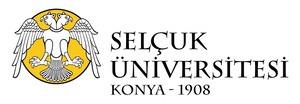General Rules
All researchers (henceforth experimenters) using the laboratory agree to abide to the principles widely accepted by experimental economists, such as no-deception of participants (see Friedman and Sunder, 1994). Deviations from these principles jeopardize the credibility of all experimental data and as such will not be permitted. These rules are applicable for all experiments using the subject pool of the Selçuk University. Note that it is not possible to debrief subjects after the experiment.
-All experimenters using the volunteer database and/or the laboratory facilities agree to protect the reputation of the laboratory with respect to its subjects.
-They also agree to protect the reputation of the laboratory and affiliated institutions with respect to the general public. When there is uncertainty on the part of the researcher regarding this, he/she should discuss the issue with the laboratory management and possibly the ethics committee. Selçuk University employees have the possibility to contact the ethics committee of the faculty.
-This implies, amongst other things, that experiments should start on time and finish on time.
-Advertised experiments for which participants have been invited should not be cancelled nor should the advertised time/venue be changed.
-Experimenters are strongly encouraged to test the software code and other procedures before asking the research assistants (RA’s) to announce an experiment and invite subjects. Experimenters should take all possible care (e.g., run pilots) prior to requesting the responsible RA to recruit subjects.
-Send the reservation form and the instructions to subel@selcuk.edu.tr at least 1 week before the scheduled date and obtain approval from the laboratory manager.
-It is required that all experiments include the SUBEL data protection form. Please include it in your experimental code or pass it to the participants in paper form. For any questions, please contact the data protection officer of SUBEL: mtek@selcuk.edu.tr eboztas@selcuk.edu.tr
-Usually, there will be one RA who is responsible for the organizational details and the procedures of the experiment. The experimenter should also provide the RA with a short description of the experiment and the instructions of the experiments. This information is used to keep track of the experiment history of the lab and the participants.
-To book the lab the experimenter should obtain a good estimate of the exact amount of time which is needed to run an experiment (e.g., by running pilots). The minimum duration of a scheduled session has to be 30 minutes (if the session is shorter, subjects should be compensated for 30 minutes).
-It is highly recommended to have a break between two sessions. This prevents an interaction between participants who have already taken part in an experiment and other participants who are waiting outside for the next session.
-Experimenters using our volunteer database have to properly indicate that subjects were recruited using ORSEE. ORSEE is citeware, that is, any academic report, publication, or other academic disclosure of results obtained with the use of this software has to cite the following publication:
If the experiment is conducted using z-Tree or oTree, the experimenter has to indicate its use in the academic publication and cite the following publication:
Fischbacher, Urs. 2007. z-Tree: Zurich Toolbox for Ready-Made Economic Experiments.
Experimental Economics, 10(2): 171–178.
Daniel L. Chen, Martin Schonger, Chris Wickens. 2016. oTree – An Open-source Platform for Laboratory, Online, and Field Experiments. Journal of Behavioral and Experimental Finance, 9: 88–97.
Compensation for experimental subjects (students)
-It is recommended that students participating in the experiment be paid at least one hour’s minimum wage (approximately 100 TL) for an experiment lasting 1 hour.
-If the experiment is terminated, participants should be paid the minimum wage.
-Giving students the possibility to earn a reasonable amount is important for reputational concerns and possibly creates positive spill-over effects, which makes recruiting easier.
Instructions
The instructions should provide all necessary and relevant information regarding the tasks and payment of students in a concise and clear way. It is also advisable to include a quiz at the end in order to check the understanding of the participants. Moreover, the instructions must include the following paragraph in the beginning.
Welcome to our experiment!
During the experiment you are not allowed to use electronic devices or to communicate with other participants. Please use only the programs and functions intended for the experiment. Please do not talk to the other participants. If you have a question, please raise your hand. We will then come to you and answer your question in silence. Please do not ask your questions out loud. If the question is relevant for all participants, we will repeat it loudly and answer it. If you violate these rules, we must exclude you from the experiment and the payout.
It might be also useful to state who is providing the funding of the research and possibly a short, very general statement about the purpose of the study. A possible example is:
The experiment you are about to participate in is part of a project funded by [Funding agency]. It is used to analyze economic decision-making behavior.
Checklist for experimenter
Send the reservation form and instructions at least 1 week in advance.
Check that the minimum and average payments comply with the lab rules. Check that there is no deception.
Make sure to prepare the consent form either in the code or on paper.
